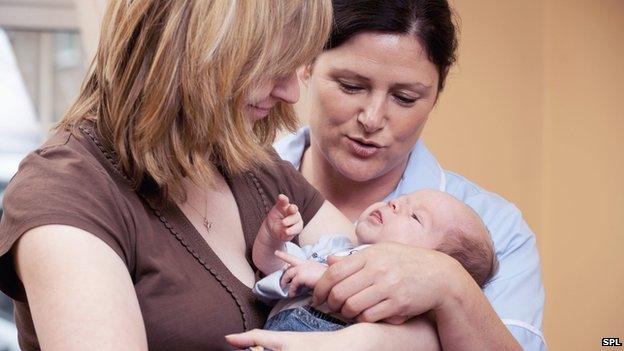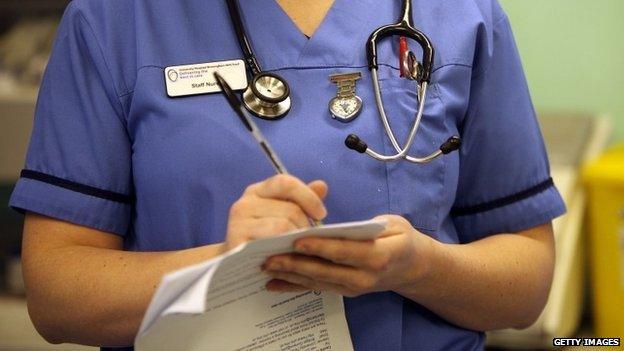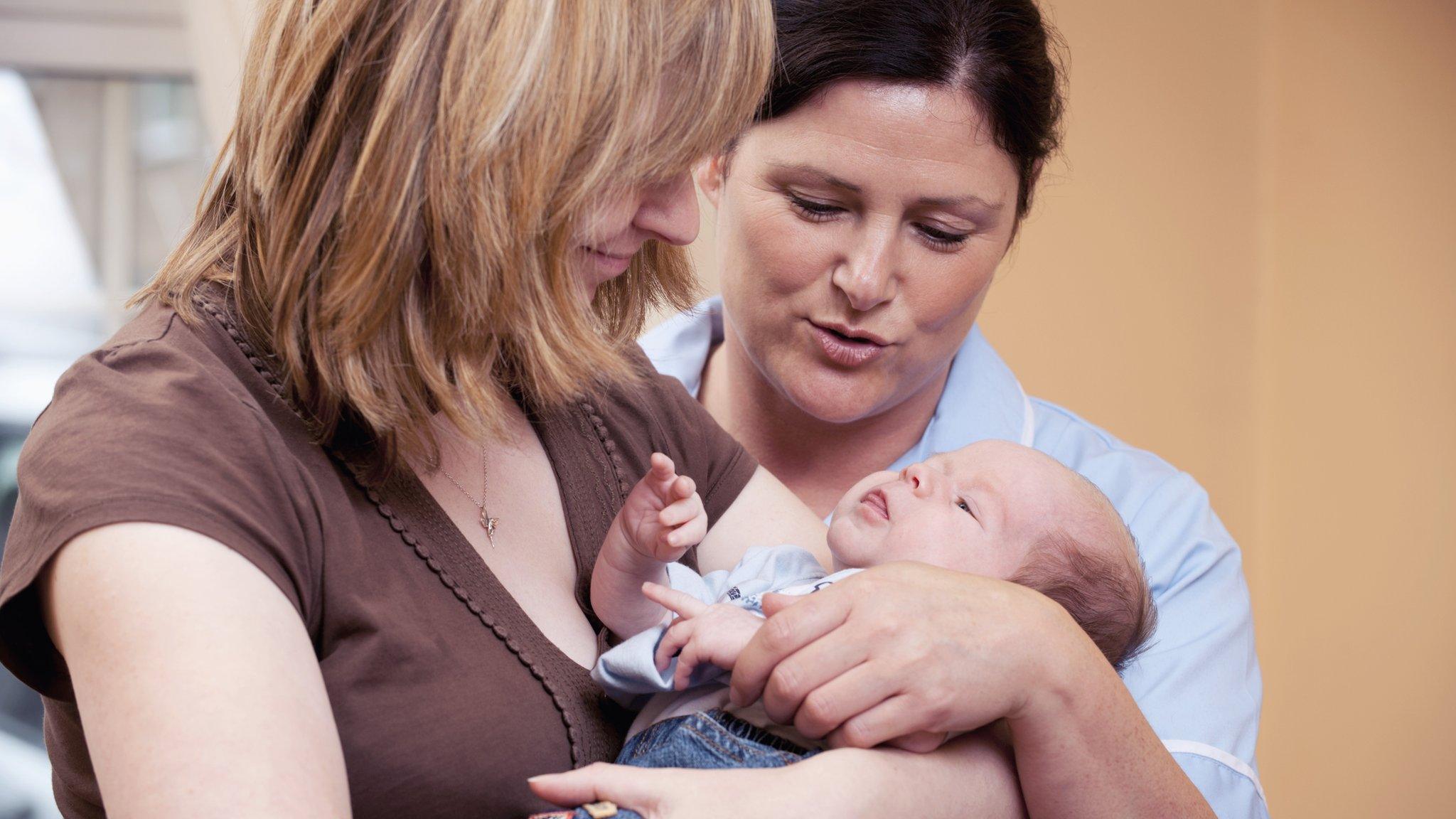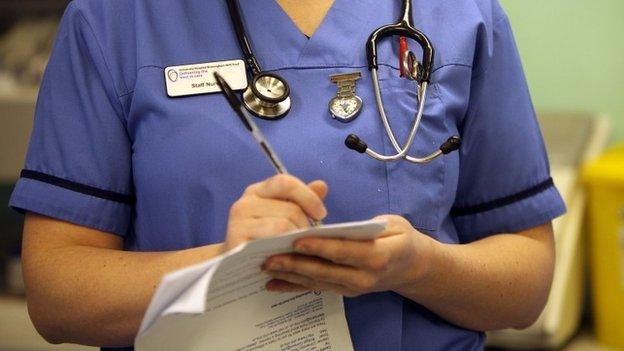Midwives vote in favour of strike action
- Published

Midwives will be joining other NHS workers in England in a strike over pay next month.
The Royal College of Midwives announced 82% of its members voted in favour - the first time they have ever been balloted on industrial action.
They will join other staff, including nurses, healthcare assistants and porters, in the 13 October walk-out.
The strike will last four hours, but the RCM said midwives will still be there for women giving birth.
Instead, it will be ante-natal and post-natal appointments that will be affected by the strike which starts at 7am.
It follows last week's announcement that the members of both Unison and Unite, which represent nearly 400,000 workers between them, had voted in favour of taking action.
Jon Skewes, Royal College of Midwives: "Women and their families deserve midwives who are well-motivated and paid a decent wage"
These unions are also targeting non-urgent and non-emergency services. It could mean hospital outpatient appointments, community clinics and minor surgery being affected.
The walkout - the first in 32 years over pay - will be followed by a period of action short of a strike. This is likely to involve staff refusing to work unpaid overtime.
Ballot results for a host of other unions, including the GMB, are due later this week. In total, 10 balloted their members over the pay award announced earlier this year.
'Resounding yes'
Ministers have given NHS staff a 1% increase, but not for those who get automatic progression-in-the-job rises.
These are designed to reward professional development and are given to about half of staff and are worth 3% a year on average.
But the decision by ministers went against the recommendation of the independent pay review board, which had called for an across-the-board rise.
Cathy Warwick, chief executive of the Royal College of Midwives, which has 26,000 members, said: "This is a resounding yes. It could not send a clearer signal about the level of discontent on this issue.
"The RCM will be meeting with employers to discuss our action and to ensure that mothers and babies are not put at any risk. I want to reassure women expecting a baby that midwives will continue to look after them and that they will be safe. "
As well as voting on a strike, just over 94% said they were in favour of industrial action short of a strike. Nearly half of midwives eligible voted in the ballot.
In Scotland, the recommendation was agreed to in full. Wales is doing the same as England, but has given extra money to the lowest paid.
- Published24 September 2014

- Published18 September 2014

- Published22 July 2014

- Published16 June 2014

- Published30 June 2014

- Published13 March 2014

- Published13 March 2014